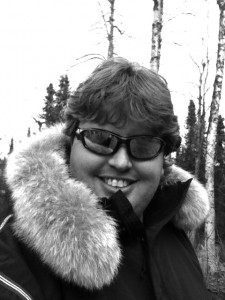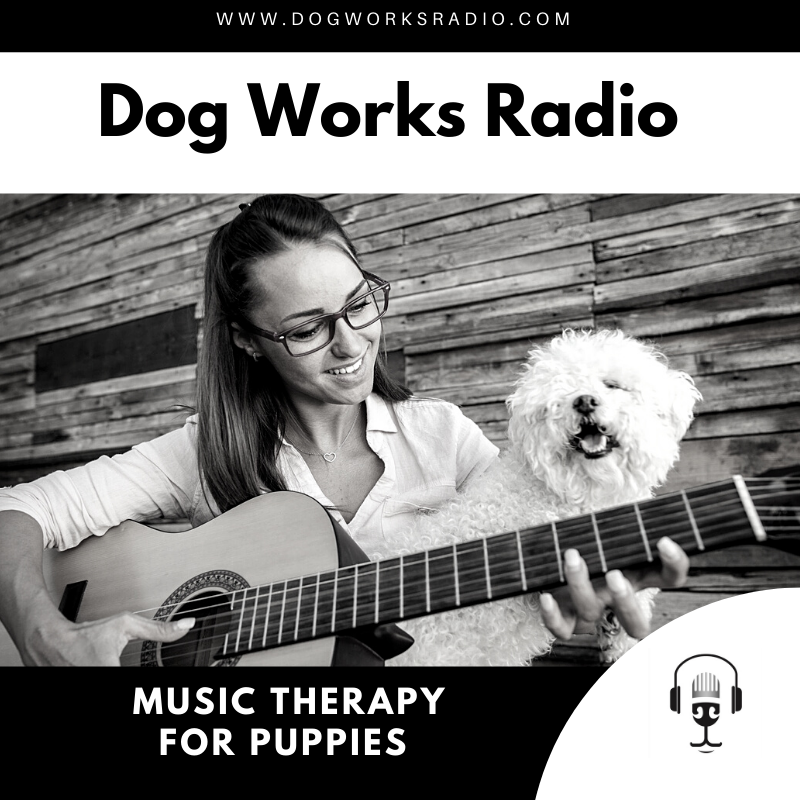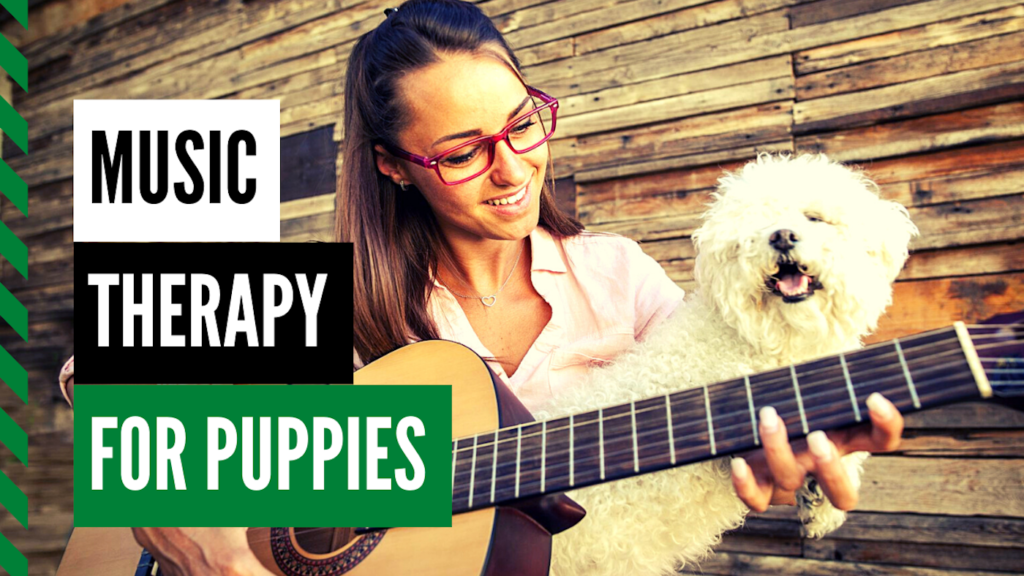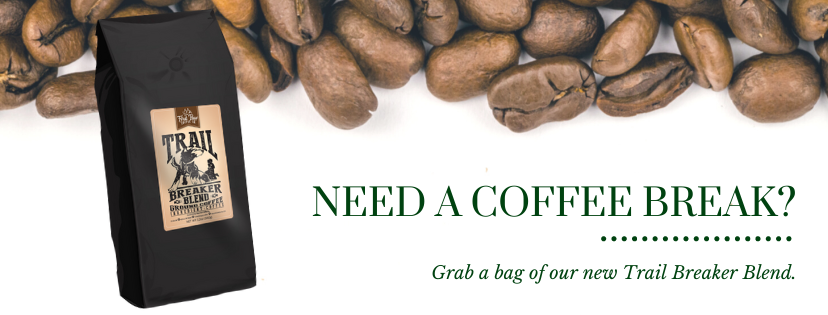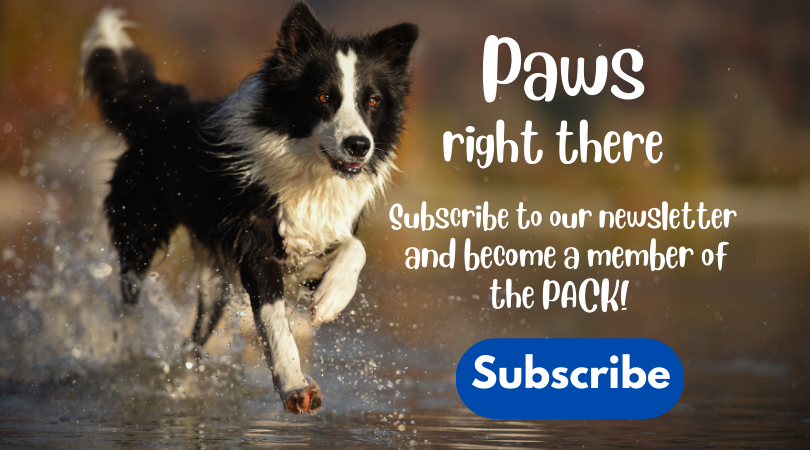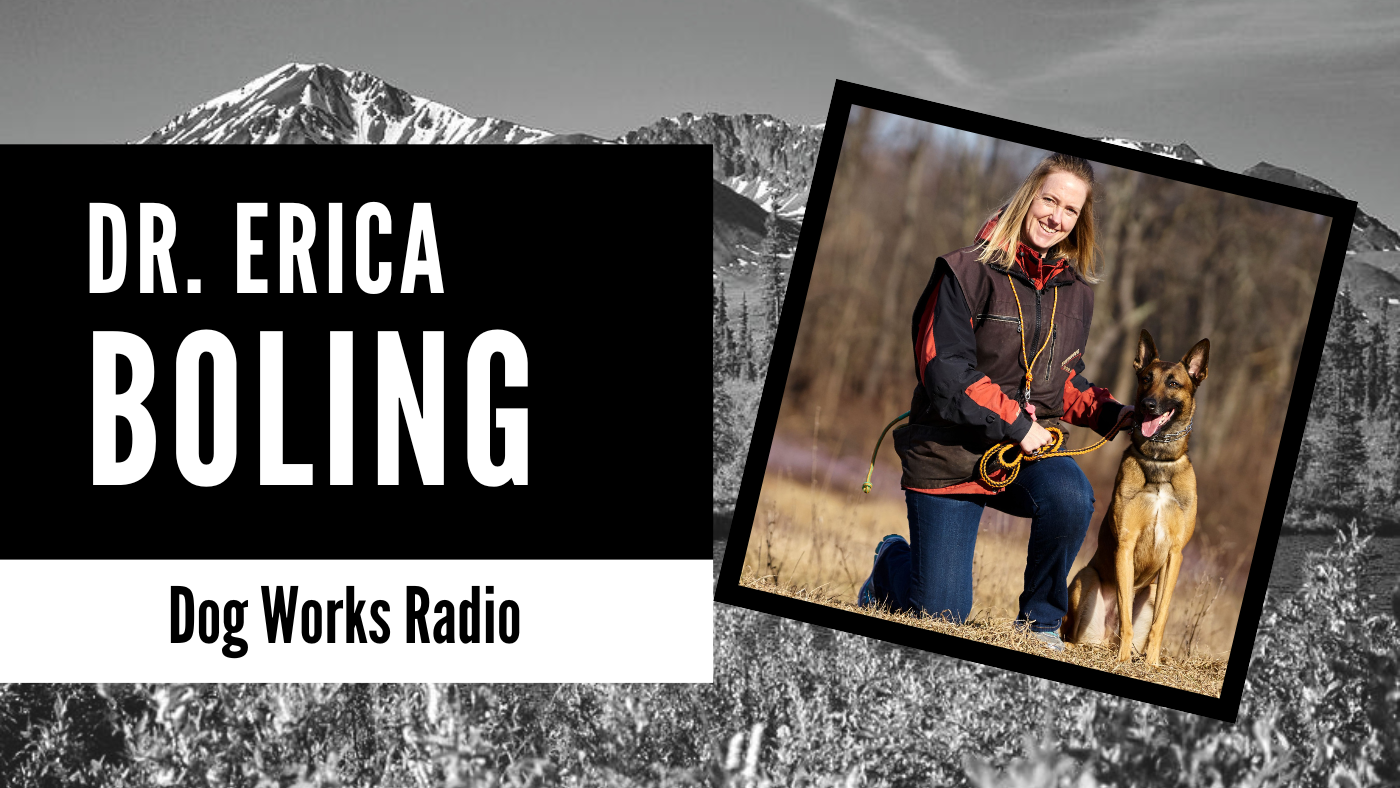Join host Michele Forto as she presents Music Therapy for Puppies
Did you know that Puppies and music can be a positive, therapeutic mix? Music can mask scary noises like thunder and fireworks or upsetting sounds like a trespassing mail deliverer that put your puppy’s tail in a twist. It can even be helpful for separation anxiety or “pep up” a lethargic pet. The cadence of certain sounds influences the body’s natural rhythms and can speed them up and energize the listener or slow them down to calm them. On today’s show, we are talking all about music therapy and puppies. We are also talking about separation anxiety and how music can help too.
What we talk about on this episode:
- What is music therapy for puppies?
- What is sound therapy?
- How to help puppies with music
- What is separation anxiety?
Music Therapy for Puppies
Hello and welcome to dog works radio. I am Michele Forto and I am the lead trainer of Alaska dog works. Here we help owners and their dogs have the best possible relationships. Quick pause Today we are talking about music therapy for puppies. Before you dismiss this as some woo-who hocus pocus junk, hear me out. If you are a fan of the podcast you know I talk a lot about the four critical periods of a puppy’s life which includes a fear period and you must recognize that sounds like thunderstorms and fireworks are a very big deal for puppies. Music is a great tool to use. In fact, we have taken this to a whole new level and started creating playlists right here on our podcast and even on our YouTube channel, First Paw Media with special music to use when training your dog. Go check it out. Today we are going to talk about a bunch of other reasons why music therapy is good for your puppy and also talk about separation anxiety, which music does wonder for too.
A hyperactive or fearful pet can be soothed with music or distracted by nature sounds like water running from a fountain. Lethargic pets that need to exercise can be energized with chirping squirrel sounds or fast music to get them up and bouncing to the beat.
Puppies are even more sensitive to sound than people are. Puppy hearing is very acute, so it doesn’t have to be loud music to have an effect.
Sound causes physical changes in the body. Brain waves change with different kinds of sounds—music with a pulse of about 60 beats per minute slows the brain waves so the listener feels more relaxed and peaceful and shifts the consciousness into a more alert state. This rhythm also slows breathing, which calms the mind and improves metabolism.
Even the heart wants to follow the pulse of the music—faster rhythms energize the listener as their heartbeat increases and blood pressure rises, while slower tempos simply calm them. Listening to music releases endorphins—natural painkillers that are produced by the brain—and reduces the levels of “stress hormones” in the blood.
Sound Therapy
Sound therapy is still considered pretty new. One of the best-known applications is an ultrasound that uses the “echo” of high-frequency sound waves to take diagnostic pictures inside the body; doctors even use it to break up kidney stones with vibration instead of surgery. Over the last 20 years, music therapy has become a staple of the human mental health profession and is often used with troubled children and brain-disordered patients. It’s also helpful for stress relief for people in general.
Therapeutic harp music helps relieve pain that drugs don’t, soothes an emotional upset, and has become of particular help in hospice situations for human patients. One of the pioneers, Susan Raimond, also promotes the therapeutic effect of harp music on animals. The sound of harp music calms fractious dogs and cats and offers almost a natural sedative effect so that the upset animals become quiet, lay down, and go to sleep.
Helping Puppies with Music
The simplest way to treat puppies with music is to put on music or turn on the radio. Choose the music you like—pets seem to respond best to music their owners enjoy because of the bond you share. If you have a favorite music genre you often play, your pet will associate the sound with your presence—so playing that same music when they are alone will remind them of you and help ease problems like separation anxiety.
Soft music with a slow, steady rhythm helps calm agitated puppies. It can help arthritic pets relax their muscles and increase their range of motion. It takes about 10 or 15 minutes for the music to take effect. Many pets enjoy Mozart or other classical music. New Age, soft jazz, southwest music with flutes and nature sounds, or even ballad-type country music can be soothing. The music should be melodic (not dissonant) and the tempo even and slow. You can play calming music anytime your pet feels stressed—even all day long as a background to help keep them calm.
Turn up the volume to energize your pet. Moderate to loud music with a more driving beat energizes the emotions and can encourage lethargic pets to exercise and lift depression. Rock music, even the driving energy of rap may get a pet’s tail moving, but any up-tempo music from classical to contemporary has the power to energize. Again, play the music for at least 10 to 15 minutes at a time to get your pet in the right mood.
Any music that you play on a regular basis helps your puppy identify that sound with your comforting presence. Even if your puppy doesn’t suffer from separation anxiety, familiar music can help if you need to be away from home, because you can play your favorite music to help your pup feel better about your absence.
Puppy separation anxiety isn’t uncommon. According to veterinary behaviorists reporting at the Western Veterinary Conference, about 14 percent of pet dogs seen in veterinary clinics suffer from problems being left alone. Puppies adopted before eight weeks of age, mixed breeds, and pups adopted from shelters are at the highest risk.
What Is Separation Anxiety?
Animal behaviorists recently have begun to use different terms to describe the condition. That’s because not all dogs become anxious when left alone, although they do act out. Separation distress doesn’t necessarily mean the pup feels anxious and probably is a more accurate description of dogs displaying separation behaviors.
Separation behaviors encompass a whole range of activities that might take place as a result of the puppy being left alone. Many times, dogs act out because they’re stressed or anxious at the owner’s absence.
Affected puppies feel over-attachment to one or more family members. Problems develop when the amount of time you spend with the pet changes. Puppies learn to become comfortable with their new routine, and a change in routine perhaps due to kids returning to school, your new job, new dog introduction, or baby can cause your puppy stress.
Separation Behaviors
The puppy follows you around the house and becomes increasingly upset as you prepare to leave. When left alone, affected pups act anxious or distressed, often become extremely vocal, and sometimes forget house training. They may destroy property either to escape or as a way to relieve stress.
Many pups with separation anxiety target personal items. For instance, they chew up your shoes or a favorite purse. They aren’t retaliating for being left alone. Because these items smell like you, that can trigger anxiety that prompts destructive displacement behaviors. Puppies may also seek out objects that smell like you because your scent comforts them.
But some behaviorists suggest that separation behaviors such as emptying your sock drawer or chewing up the toilet paper may arise out of boredom. This could be the canine equivalent of a teenager left alone by parents and throwing a party. About the only way, you can tell the difference is to set up a video camera while you are gone, and have it looked at by a behaviorist to see if the dog shows anxious behavior or simply appears to have a good time disemboweling the sofa cushions.
In a similar fashion, pups may forget potty training. Older pups might even decide to mark with urine or defecate on something that smells like their owner. This isn’t to get back at you, but instead is the pup’s attempt to self-soothe.
Calming Separation Behaviors
Pets should never be punished for any anxiety-based behavior because punishment makes it worse. If your puppy exhibits destructive separation behaviors, you can take steps to reduce the problem.
- Your veterinarian may prescribe drug therapy that relieves the angst, such as Clomacalm (clomipramine hydrochloride) or Reconcile (Prozac or fluoxetine). But drugs alone won’t be a magic wand.
- The most intense acting out happens within the first 20 to 30 minutes after you leave, and how long you’re gone doesn’t seem to matter. So if you can distract the puppy during this critical period, much of its upset feelings will be relieved, and destructiveness may be eliminated.
- Desensitize the puppy to the triggers of departure. Pick up your car keys 50 times—but then don’t leave. Put on your coat or open the door a dozen times, then stay inside. Repetition of these cues makes them lose meaning so the pup doesn’t get upset and remains calmer when you actually do leave.
- Stage absences to build up the puppy’s tolerance level. Leave for one minute, two minutes, four, 10 minutes and so on. Do these 10 or 15 times in a row so that the repetition makes it less important to the pup.
- Make sure the puppy gets lots of exercise before you leave and after you return home. A tired pup is a better-behaved pup. If it’s worn out, it will snooze rather than chew up the cushions.
- Soothing music can also help calm anxiety.
- Bach flower essences also can help dogs with anxieties. You can add the drops to the puppy’s water bowl for all-day sipping.
- You can also offer puzzle toys filled with tasty treats and hide them around the house for the puppy to find. When it’s thinking and hunting for treats, it can’t worry or develop a full-blown panic attack.
For our listeners local and on KVRF it is now time for our calendar of events!
February is chock full of month-long observances for you and your pet.
- Beat the Heat Month.
- Dog Training Education Month.
- National Cat Health Month.
- Spay/Neuter Awareness Month.
- Pet Dental Health Month.
- Responsible Pet Owners Month.
- National Prevent a Litter Month.
Stay tuned to our social media pages as we will be doing some cool stuff in regard to these events.
This week:
- 2: Sled Dog Day. Every day is sled dog day here!
- 3: Doggy Date Night. Ooohh, this sounds fun. Did you know that we have a very popular podcast episode called the Best dog movies on Netflix? Go to dog works radio.com and search for it in the search box.
- 3: National Golden Retriever Day. I bet our buddies, Miranda and her pup Hank will be partying it up!
In early April we will be at the Mat Su Outdoorsman show at the Alaska State Fairgrounds in Palmer for this three-day event. Come out and say hello. We like it when you say hi. We will also have all of our coffee blends on sale, a bunch of gear and you can learn all about our adventure dog club just in time for spring. We are excited about this one. It was canceled last year because of COVID but this year is supposed to be bigger than ever. Not only will we be there but there will be food trucks, live events, demonstrations, and much more. This is the premier event for anyone that is interested in getting outdoors in Alaska.
On April 17 we will be starting our group classes in the park. They will be held at wonderland park in Wasilla at 11:30 am. These are free for our current and past clients and are part of your training package. If you are not a client or just want to check us out, this is a great way. We do have a nominal drop-in fee.
We are gathering gear for our first ever nose work class and treiball and Robert is thinking about doing pack walks again too. If you want to get an idea what we will be doing, head on over and watch the Pack on Amazon Prime Video. It is a really cool show!
Did you know that every Wednesday and Sunday night we do a Facebook live at 7pm? Be sure to check us out. If you miss the live broadcasts you can always tune in later too.
We have a special announcement! Our daughter Nicole has joined Alaska Dog Works and she will be offering, among other things day training classes in Anchorage. Much more on that to come. Did you know that Nicole started training dogs at nine years old and one of her first clients was a family with two huge Rotties they said couldn’t walk on a leash!
Also, stay tuned for info about the summer festival, how you can train your dog to run in the Alaska dog works dryland derby this fall, and much more. As always you can keep up to date by following us on our social channels, just search dog works radio and for more training tips and tricks and to learn how to schedule a free discovery call to talk with us about how to make your dog one of the best, visit Alaska dog works.com
One last thing did you know the single best thing you can do is tell your family and friends about our show. Why don’t you send them a link to this episode and they too will soon be a rabid listener?
Host, Michele Forto’s Bio: Michele Forto is the lead trainer for Alaska Dog Works where they train dogs for service work, obedience, and more. Michele is also the business manager and husky wrangler for Team Ineka. When Michele is not training dogs she loves to travel on their annual Rock n Roller Tours where she and Robert hit up rock concerts and roller coasters around the country.
Host, Robert Forto’s Bio: Robert Forto is the training director for Alaska Dog Works where they train dogs for canine obedience, working dogs, therapy dogs, and service dogs for clients all over North America. He is also a dog musher and he and his wife operate a 36-dog mushing kennel in Willow, Alaska, called Team Ineka. They can often be seen at local races and leading expeditions in the Alaska backcountry with outdoor leadership students at the University of Alaska. Robert is the producer of Dog Works Radio that has been on the air since 2009 and is currently simulcast on a local radio station, KVRF in Palmer, Alaska.
Links and Resources Mentioned:
- RSS feed for our show: https://dogworksradio.libsyn.com/rss
- Alaska Dog Works
- First Paw Coffee
- Robert Forto on Twitter: @robertforto
- Dog Works Radio on Twitter: @dogworksradio
- Michele Forto on Twitter: @micheleforto
- Alex Stein on Twitter: @coldfootfilms
- Dog Works Radio on Facebook
- Dog Works Radio on Instagram
- KVRF in Alaska
Thanks for Listening! We appreciate your visiting our site today and for help in bringing awareness to the Dog Works Radio podcast
Where we are going? (In real life)
- Rock n Roller Coaster Tour 21 #rocknroller21 to live host The Coaster Geeks Podcast
- Podcast Movement 21 in Nashville in August #PM21
Audience feedback drives the show. We would love for you to email us and keep the conversation going! Email live@dogworksradio.com or call us at 907-841-1686
-
- We would love to hear from you!
Help us spread the word! We would love it if you could please share #DogPod with your Twitter followers. Click here to post a tweet If you dig this episode head over to Apple Podcasts and kindly leave us a rating or a review and subscribe!
Ways to subscribe to Dog Works Radio
Feedback and Promotion You can ask your questions, make comments, and request a show topic! Let your voice be heard.
-
- Email live@dogworksradio.com
- Book an interview on the show
- Take the Survey

